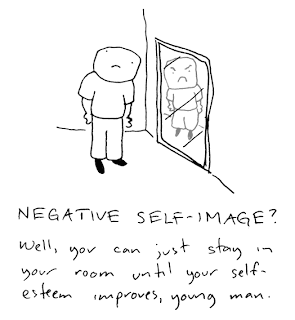One of my favorite chapters is about generating WILD ideas - those ideas that seem CRAZY when they pop into your head, but just might be THE idea that sparks the answer to those illusive questions, "What's next? What will really grab people's attention?"
Somewhere in the chapter he talks about writing a Newsletter of the Future (an idea he has apparently trademarked, so don't go stealing this!). Here's the concept: Fast forward 20 years. A newsletter is released describing your life, your company, or your ministry's program or focus. What are the headlines of that newsletter? What do they say?
Think about it. What do you want to accomplish in 20 years? Personally? Professionally? In your family? Financially? Spiritually? Where do you want to be in 20 years? What will the headlines say?
Here's why this is part of the brainstorming process: Don't think about HOW you're going to get there. Don't think about what needs to happen to get there. Don't 'block' yourself; that is, don't think of why you can't accomplish these things. That critical thinking comes later. What would you do, seriously, if $ didn't matter, and ideas that would otherwise be considered CRAZY were considered normal, encouraged, allowed?!
I think all of us should consider making our own Newsletter of the Future lists. What do you want to accomplish? What are the TOTES CRA CRA (that is teenage speak for "totally crazy" I'm told) ideas floating in that brain of yours that you're afraid to tell someone about because what if...what if they said, "LET's DO IT!" Think crazy. Think big. Think WILD.
Here's what's on my list right now, and this list will surely grow. It's the year 2032, and I'm 52 years old. This is what I'm dreaming of:
1) The McDaniel family has spent a year or two living overseas. The McDaniel family is fluent in Spanish and it greatly impacts their cross-cultural ministry in the U.S.I'm still dreaming. What about you?
2) Chad has been a speaker at an event like CHIC.
3) Began a non-profit business with Jodi's knowledge of management, marketing, and the non-profit sector that supports ministry to the homeless and children on the margins.
4) Own a house on a lake that is used regularly by ministries and family. A place of hospitality, generosity, and community. We want to be in a place where we can be insanely GENEROUS and BLESS other ministries as we've been blessed in ministry.
And here's why this is a GENIUS part of brainstorming: Look at your list. I bet you can do these things. I bet if you grabbed this book and went through the whole brainstorming process you'd realize, "I can do this. I can accomplish even some of the WILD-est ideas on my list."
So do it. Make the list. Start thinking WILD. Start dreaming big.
















